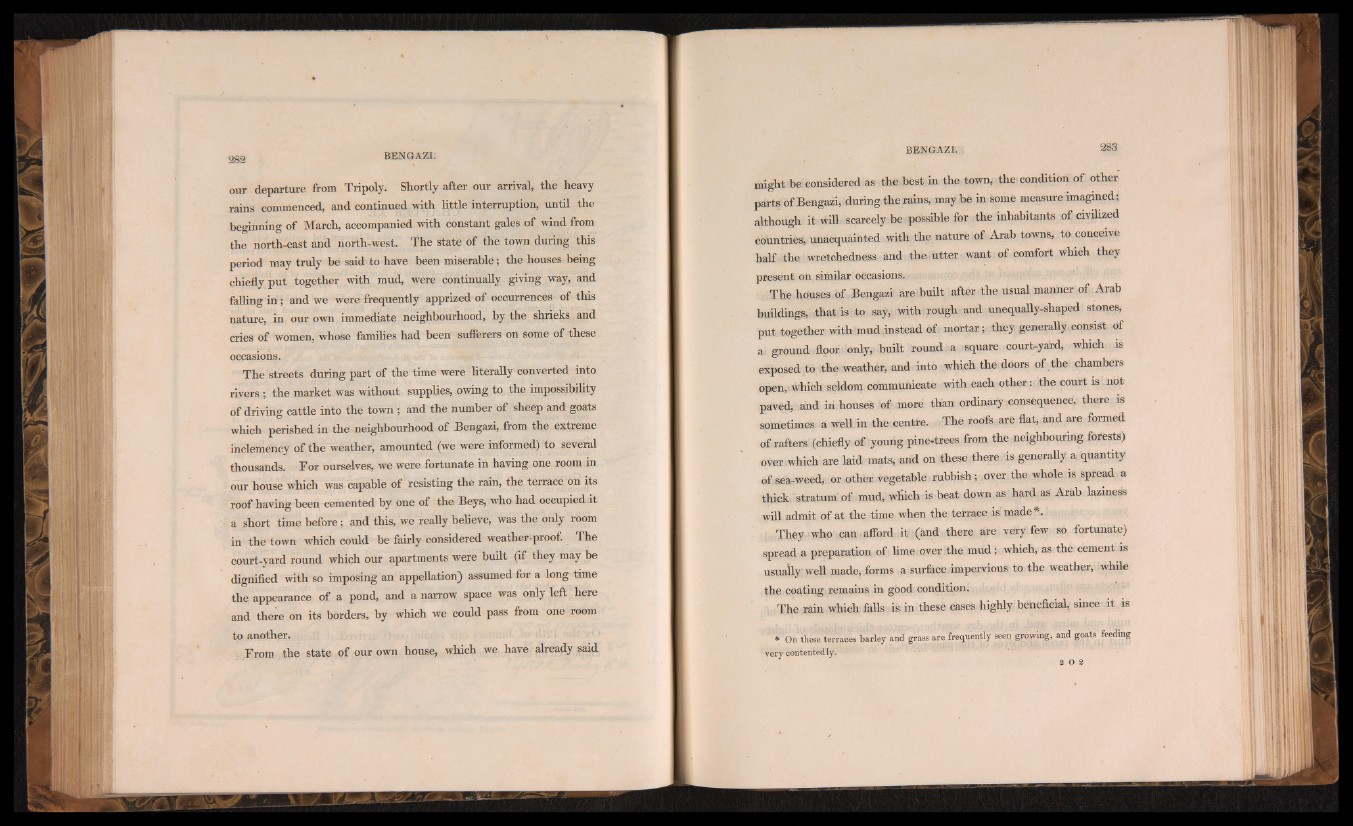
our departure from Tripoly. Shortly after our arrival, the heavy
rains commenced, and continued with little interruption, until the
beginning of March, accompanied with constant gales of wind from
the north-east and north-west. The state of the town during this
period may truly be said to have been miserable; the houses being
chiefly put together with mud, were continually giving way, and
failing in ; and we were frequently apprized of occurrences of this
nature, in our own immediate neighbourhood, by the shrieks and
cries of women, whose families had been sufferers on some of these
occasions.
The streets during part of the time were literally converted into
rivers ; the market was without supplies, owing to the impossibility
of driving cattle into the town ; and the number of sheep and goats
which perished in the neighbourhood of Bengazi, from the extreme
inclemency of the weather, amounted (we were informed) to several
thousands. For ourselves, we were fortunate in having one room in
our house which was capable of resisting the rain, the terrace on its
roof having been cemented by one of the Beys, who had occupied it
a short time before; and this, we really believe, was the only room
in the town which could be fairly considered weather-proof. The
court-yard round which our apartments were built (if they may be
dignified with so imposing an appellation) assumed for a long time
the appearance of a pond, and a narrow space was only left here
and there on its borders, by which we could pass from one room
to another.
From the state of our own house, which we have already said
might be considered as the best in the town, the condition of other
parts of Bengazi, during the rains, may be in some measure imagined;
although it will scarcely be possible for the inhabitants of civilized
countries, unacquainted with the nature of Arab towns, to conceive
half the wretchedness and the utter want of comfort which they
present on similar occasions.
The houses of Bengazi are built after the usual manner of Arab
buildings, that is to say, with rough and unequally-shaped stones,
put together with mud instead of mortar; they generally consist of
a ground floor only, built round a square court-yard, which is
exposed to the weather, and into which the doors of the chambers
open, which seldom communicate with each other: the court is not
paved, and in houses of moré t h a n ordinary consequence, there As
sometimes, a well in the centre. The roofs are flat, and are formed
of rafters (chiefly of young pine-trees from the neighbouring forests)
over which are laid mats, and on these there, is generally a quantity
of sea-weed, or other vegetable rubbish; over the whole is spread a
thick stratum of mud, which is beat down as hard as Arab laziness
will admit of at the time when the terrace is made *.
They who can , afford it (and there are very few so fortunate)
spread a preparation of lime over the mud ; which, as the cement is
usually well made, forms a surface impervious to the weather, while
the coating remains in good condition.
The rain which fálls is in these cases highly beneficial, since it is
* On these t e r r a c e s barley and grass a r e frequently seen growing, and goats feeding
very contentedly . ; I — -